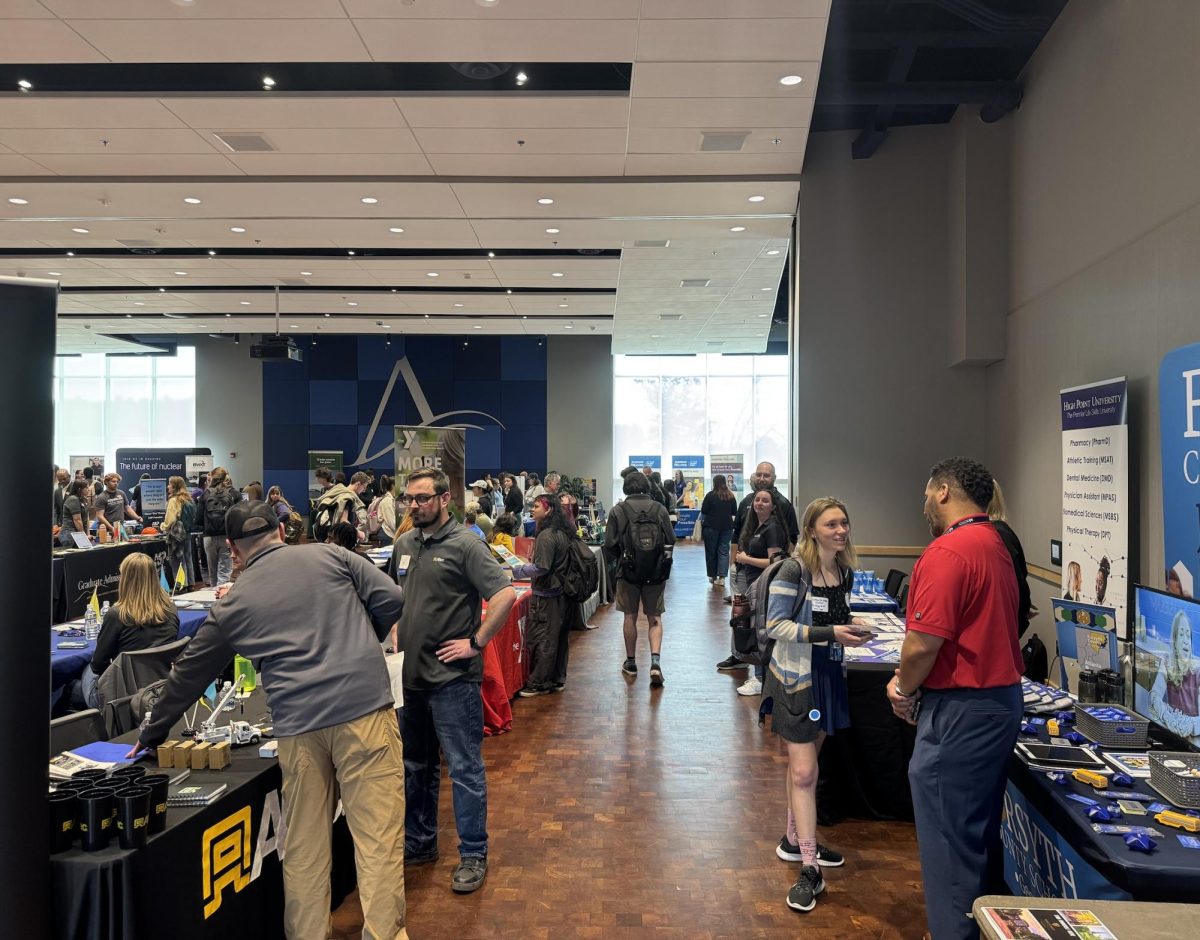Lauren DeHaan, associate director of career education with the University of North Carolina Asheville Career Center, said she is not surprised by the number of college students feeling unprepared to work after graduating.
“There is a lot to unpack with these numbers,” DeHaan said.
57% of college seniors said they feel anxious about starting work after graduation, according to a survey from The James G. Martin Center for Academic Renewal.
DeHaan said a leading factor hindering college student confidence entering the workforce is a lack of networking skills. “The top three we consistently see in demand are critical thinking, communication, and teamwork,” DeHaan said.
She said a current struggle she sees with students at UNCA is difficulty utilizing networking skills or failing to know they have the skills to begin with. “Those skills can be really challenging for some students to articulate how they know they have them,” DeHaan said.
She said a mistake most students make is not connecting communication skills with their academic major. “There’s the uncertainty of ‘I know I should have something in mind to do’, but they also skip over the core elements of being able to communicate and talk about their skills,” DeHaan said.
A survey by Handshake shows only 68% of college seniors found college has given students skill to secure well-paying jobs. The poll found 45% of students say their school’s career preparation methods are good or excellent.
According to the National Association of Colleges and Employers, colleges lack professional development on career readiness and access to labor market information resources to better serve students’ career needs.
“It’s not usual for career centers to have just a handful of people supporting thousands and thousands of students. That’s a capacity challenge,” DeHaan said. She said the number of employees working in campus career centers is why colleges struggle to offer career readiness to students.
Inside Higher Ed’s 2024 Student Voice survey said 68% of students are somewhat stressed about their futures after college. The poll said 25% are extremely stressed about their future after college.
“I guess I’m not terribly surprised to hear that,” said UNCA senior Caleb Johnson. He said he is also shocked by the number of college students feeling unprepared to work.
Johnson is a 22-year-old Asheville native and a photographer since 2019 working part-time for the local paper Mountain Xpress. “Of course, I know the college has room for improvement. But it is disappointing to hear,” Johnson said.
Johnson is studying photography and said he will continue to work in photography upon graduating college.
“I feel pretty prepared myself and I think college has really helped me get to that point,” Johnson said.
In the same year 57% of college seniors said they feel anxious about starting work after graduation, NACE said 2024 graduates experienced less employment demand compared to 2023 and 2022 college graduates.
DeHaan said many factors come into play affecting the job market, but the changing times and what they bring to the workforce can affect job availability. DeHaan said the job market changes every few years and new jobs are created every day.
Former UNCA student Cody Therrien attended college for one year prior to dropping out due to financial difficulty and struggles with emotional readiness. Therrien said college does not prepare students with the workforce.
“I was very lucky to have experience working before I went to college,” Therrien said.
Being unprepared to work after graduation will continue to plague students because they don’t have experience of working and they may not know how to talk to people, Therrien said.
Student confidence would elevate if college curriculum included a way to practice more communication skills in a safe and approachable way, DeHaan said. Students should take advantage of on-campus resources for career readiness such as career centers and coaches, she said.
“The reality is that everyone is just kind of fumbling through it. That’s life. Everybody is just kind of taking it one day at a time. Even once you’re in big kid world, as I like to say, you’re still taking it one day at a time,” DeHaan said.


![Brooke Pedersen [second from the right] and Luis Reyes [right] hold banners during the Wrap The Woods event.](https://thebluebanner.net/wp-content/uploads/2025/09/ELIZABETH_PRITCHITT_IMG_3470-1200x804.jpg)

















